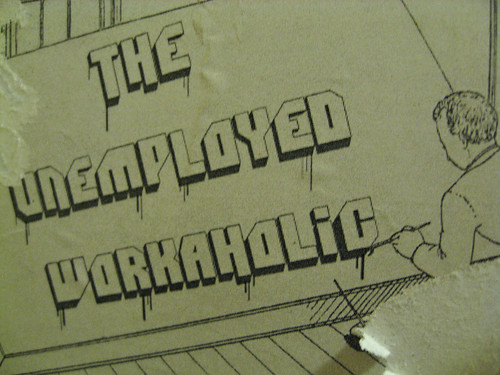How do conscientious people handle unemployment differently?
nscientious individuals tend to achieve more and have higher well-being. This has led to a view that conscientiousness is always positive for well-being. We hypothesize that conscientiousness could be detrimental to well-being when failure is experienced, such as when individuals become unemployed. In a 4-year longitudinal study of 9570 individuals interviewed yearly we show that the drop in an individual’s life satisfaction following unemployment is significantly moderated by their conscientiousness. After 3 years of unemployment individuals high in conscientiousness (i.e. one…
1 min read
How do you turn enemies into friends?
ke them work to achieve a common goal. Via Wikipedia: Sherif is equally famous for the Robbers Cave Experiments. This series of experiments, begun in Connecticut and concluded in Oklahoma, took boys from intact middle-class families, who were carefully screened to be psychologically normal, delivered them to a summer camp setting (with researchers doubling as counselors) and created social groups that came into conflict with each other. These studies had three phases: (1) Group formation, in which the members of…
1 min read
Should you trust your gut to tell you who is a good person?
mans behave altruistically in one-shot interactions under total anonymity. In search of explanations for such behavior, it has been argued that at least some individuals have a general tendency to behave altruistically independent of profitability. In fact, a stable altruistic trait would be adaptive if it were recognizable. Then, altruists could choose each other in order to retain benefits through mutual cooperation. Previous research has shown that individuals can predict the degree of altruistic behavior of strangers by reading signs…
2 minutes
Can job insecurity harm your health?
onomic recessions, the industrial shift from manufacturing toward service industries, and rising global competition have contributed to uncertainty about job security, with potential consequences for workers’ health. To address limitations of prior research on the health consequences of perceived job insecurity, we use longitudinal data from two nationally-representative samples of the United States population, and examine episodic and persistent perceived job insecurity over periods of about three years to almost a decade. Results show that persistent perceived job insecurity is…
1 min read
Should you trust your gut when deciding whether a neighborhood is safe or not?
a Science Daily: It's an unfamiliar neighborhood and you find yourself in the middle of a bunch of streets and buildings you've never seen before. Giving the environment a quick once-over, you make a snap decision about whether you're safe or not. And chances are, that first 'gut' call is the right one, say Binghamton University researchers Dan O'Brien and David Sloan Wilson in an article published in the current issue of Journal of Personality and Social Psychology. And: Through…
1 min read
Good Grooming Can Increase Your Income
is well understood that personal grooming provides an important source of communication about individuals, their values and personalities. From an economic point of view, grooming is a non-market activity. The standard view is that time spent in non-market activities is counterproductive as it reduces work effort and job commitment. But grooming is different. There is reason to believe that certain productive personality traits may be inferred on the basis of personal grooming. Using data from the American Time Use…
1 min read
Is “tit-for-tat” the best way to deal with people?
recent episode of the consistently excellent Radiolab explored the idea, covering the work of Robert Axelrod. Turns out the age old cliche can be an incredibly powerful way to deal with others: A tit-for-tat strategy plays the iterated prisoners' dilemma game by cooperating on the first move, and then making the same choice as the other player did on the previous move. This strategy has been shown to be a very robust in that it does well with a…
2 minutes
How To Reduce Worry And Increase Performance On Challenging Tasks
a Eurekalert: Students can combat test anxiety and improve performance by writing about their worries immediately before the exam begins, according to a University of Chicago study published Friday in the journal Science. And: ...for students given the opportunity to write before the exam, those highest in test anxiety performed just as well as their less anxious classmates. "Writing about your worries for 10 minutes before an upcoming exam leveled the playing field such that those students who usually get…
1 min read








